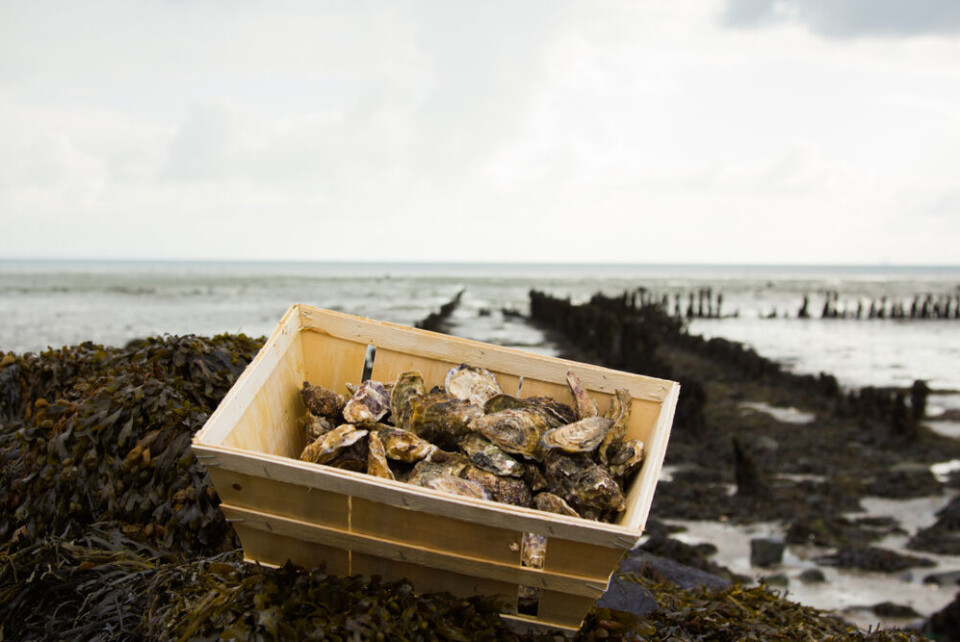-
New farmer protests this week - where and what to expect
Pressure mounts on the government over agricultural policy, disease control and trade agreements
-
Increased fire safety audits are forcing bars across France to close
Inspections follow deadly blaze in Swiss nightclub on January 1
-
Photos: widespread flooding in Brittany as warnings continue
Water levels set to rise with more rain forecast on January 26
Is it now safe to eat French oysters?
Producers have lost an estimated €7m, one farmer said, since a ban on December 27

French oysters from Arcachon (Gironde, Nouvelle-Aquitaine) are now back on sale (and can be fished again) after a ban had stopped all oyster fishing and sales in the region due to water pollution.
From today (January 19) at 09:00, farmers in the Arcachon basin have once again been allowed to sell their oysters, the Gironde prefecture said following analysis from the department’s health committee.
Oysters from this area typically make up 10% of those sold nationwide each year.
The basins of Calvados (Normandy) and Landes (Nouvelle-Aquitaine) have also seen their temporary ban lifted.
Ban after norovirus in water
A ban on the sale of shellfish, and particularly oysters, had been in force since December 27, 2023, after several cases of gastroenteritis were reported over Christmas.
The problem was linked to water pollution and the presence of norovirus in the water as a result of drainage issues after unusually heavy rainfall, rather than bad practice among the producers themselves.
Read more: Wastewater in sea blamed for oyster ban in France
An inquiry into the issue was opened in Bordeaux after an environmental association lodged a complaint about water “pollution and poisoning" that were "endangering others". Some people, it alleged, had "known this was [making the] oysters unfit for consumption" as early as November, and had been slow to act.
Oysters from Manche, Calvados, Morbihan and Landes were also suspended from sale.
‘Victims more than anything’ of €7m loss
Olivier Laban, president of the Comité régional de la conchyliculture Arcachon-Aquitaine, and oyster producer in Gujan-Mestras, said that the re-authorisation was “excellent news”.
“28 days of closure is a very long time in the life of a business,” he said in an interview with FranceInfo. “We [now] have the guarantee that our products conform [to regulations] and the wave has passed. My colleagues were waiting to go back to work; this is what we wanted.”
He also said that the producers were “victims more than anything else” because “this wasn’t linked to bad practice from farmers. This is a natural product, farming in an open space, it’s part and parcel of the risks of the job.”
Mr Laban also said there was “no certainty” that the problem would not arise again, as it was due to water network issues brought on by heavy rainfall.
“If such rainfall were to return, there could be a risk. That's all I can say,” he said.
But he added that “we will be stepping up the controls” and said that while local authorities need to work to stop the same problem happening again, oyster producers also need to “make progress with researchers to develop more efficient purification processes to get through this type of episode”.
He estimated that around 1,300 tonnes of oysters had not been sold during the ban, the equivalent of a turnover of €7 million for producers.
“That’s what the oyster farmers have lost,” he said.
At the time of the ban, the president of the industry’s regional committee, Thierry Hélie, said that the norovirus contamination was not due to producer failings, and that farmers in Normandy last year had in fact obtained the IGP label as a sign of good practice.
“We will not foot the bill for wastewater treatment plants,” he said, adding that it is up to the government to “face up to its responsibilities” to prevent the problem from happening again.
Related articles
Recap: contaminated oysters and seafood recalled in France
Shellfish ban after food poisoning cases in south-west France
























